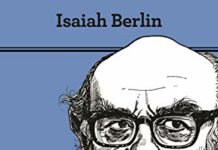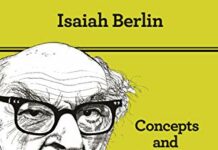
Ebook Info
- Published: 2013
- Number of pages: 561 pages
- Format: PDF
- File Size: 6.86 MB
- Authors: Isaiah Berlin
Description
Isaiah Berlin was deeply admired during his life, but his full contribution was perhaps underestimated because of his preference for the long essay form. The efforts of Henry Hardy to edit Berlin’s work and reintroduce it to a broad, eager readership have gone far to remedy this. Now, Princeton is pleased to return to print, under one cover, Berlin’s essays on these celebrated and captivating intellectual portraits: Vico, Hamann, and Herder. These essays on three relatively uncelebrated thinkers are not marginal ruminations, but rather among Berlin’s most important studies in the history of ideas. They are integral to his central project: the critical recovery of the ideas of the Counter-Enlightenment and the explanation of its appeal and consequences–both positive and (often) tragic. Giambattista Vico was the anachronistic and impoverished Neapolitan philosopher sometimes credited with founding the human sciences. He opposed Enlightenment methods as cold and fallacious. J. G. Hamann was a pious, cranky dilettante in a peripheral German city. But he was brilliant enough to gain the audience of Kant, Goethe, and Moses Mendelssohn. In Hamann’s chaotic and long-ignored writings, Berlin finds the first strong attack on Enlightenment rationalism and a wholly original source of the coming swell of romanticism. Johann Gottfried Herder, the progenitor of populism and European nationalism, rejected universalism and rationalism but championed cultural pluralism. Individually, these fascinating intellectual biographies reveal Berlin’s own great intelligence, learning, and generosity, as well as the passionate genius of his subjects. Together, they constitute an arresting interpretation of romanticism’s precursors. In Hamann’s railings and the more considered writings of Vico and Herder, Berlin finds critics of the Enlightenment worthy of our careful attention. But he identifies much that is misguided in their rejection of universal values, rationalism, and science. With his customary emphasis on the frightening power of ideas, Berlin traces much of the next centuries’ irrationalism and suffering to the historicism and particularism they advocated. What Berlin has to say about these long-dead thinkers–in appreciation and dissent–is remarkably timely in a day when Enlightenment beliefs are being challenged not just by academics but by politicians and by powerful nationalist and fundamentalist movements. The study of J. G. Hamann was originally published under the title The Magus of the North: J. G. Hamann and the Origins of Modern Irrationalism. The essays on Vico and Herder were originally published as Vico and Herder: Two Studies in the History of Ideas. Both are out of print. This new edition includes a number of previously uncollected pieces on Vico and Herder, two interesting passages excluded from the first edition of the essay on Hamann, and Berlin’s thoughtful responses to two reviewers of that same edition.
User’s Reviews
Reviews from Amazon users which were colected at the time this book was published on the website:
⭐I look forward to reading this book. It came quicker than I thought it would and is in mint condition.
⭐excellent
⭐Are we still in the world of Voltaire’s and Jefferson’s “Enlightenment”? Or are we in the “Romantic” world of Wagner and Nietzsche? Or both? Why was the German spirit so different from others?Berlin digs deep to find the start of the conflict. This struggle produced the twentieth century and continues.Vico and Herder1. Introduction2. The Philosophical Ideas of Giambassita Vico3. Vico’s Theory of Knowledge and Its Sources4. Herder and the EnlightenmentThe Magus of the North1. Introduction2. Life3. The Central Core4. The Enlightenment5. Knowledge6. Language7. Creative Genius8. Politics9. ConclusionThe trust, even worship, of human reason is called the “French enlightenment”. This movement, in many different guises, still flows. This work examines the early resistance from three critics, one Italian and two German. Vico and Hamann were/are obscure, Herder is not. Both the enlightenment and it’s opposition, romantic idealism, created benefits and horrible suffering. Berlin wants to unearth the source of both.Vico’s book “The New Science” was unknown when writen. Now famous. One theme was that human knowledge has two types. Scientific study of the external world, physics, etc., cannot be used as method for studying human life. History can be known from the inside, with knowledge of the human heart, while the outside cannot be experienced, just observed. “This is the ground of the sharp division drawn by Vico between the natural sciences on the one hand and observation of the external world on the other, as well as between their respective goals, methods, and kinds and degrees of knowability. This dualism has continued to be subject of hot dispute ever since.” (12)So true.Mathematics, the Cartesian’s example of perfect knowledge, is only perfect, Vico claimed, because humans have designed that way!”Mathematical knowledge is, in principle, not identical with knowledge of the real world. . . . For we cannot literally manufacture the physical world as he supposes that we can that of algebra and geometry.” (41)Berlin connects Vico and Marx. Vico “begins the conception of the ‘phenomenology’ of human experience and activity, of men’s history and life as determined by their own, at first unconscious, then progressively more conscious, creative molding. . . . In the forms given it by Hegel and Marx and their followers, this idea dominates the modern world. It is for this that Marx praised him.” (68)Why is the inner life of humans ignored? Because men . . . “find it difficult to think of anything in other than bodily terms. . . . The human mind is naturally inclined to see itself externally to the body, and only with great difficulty does it come to understand itself by means of reflection. . . . Which leads to crude materialism on the one hand, and fetishism and animism on the other.” (54)Herder did not read Vico until later in life. He is the father of culture worship. Universal, absolute, worldwide, abstract principles in human society stifle freedom and creativity. Father of nation worship and then (much later) worship of the national state.The German reaction to French rationalism followed Rousseau’s rejection in the 1750’s . . .”In Germany this mood was strongly reinforced by the inward looking traditionan of the pietist movement. . . . Above all their preoccupation with the life of the spirit, which alone liberated men from the bonds of the flesh and of nature.” (217)The Germans from Kant to Herder want moral salvation. They get it, not from God in heaven, but from culture on earth.Herder’s love of human creativity impels hatred of control by the State and bureaucrats . . . “The State becomes a drug with the help of which men seek to forget themselves, a self-generated method of escaping from the need to live, create and choose. Furthermore, the sheer exercise of bureaucratic activity is a form of self-intoxication.” (230)Think Nazism.Herder “denounces Kant’s philosophy of history, according to which it is the vices of mankind – desire for power and mastery over the scarce resources of the earth – that stimulate competition, struggle, and thereby progress, with the corollary that the sufferings of the individual are indispensable to the improvement of the species (a doctrine that was destined to reach its richest development in Hegel, and in another form in Spencer’s evolutionary doctrine and the vagaries of social Darwinism.)” (231)German philosophy ‘sows the wind and reaps the whirlwind’.The last paragraph on Herder: He”sensed the insecurity of the foundations of faith in the Enlightenment held by so many in his time, even while he half accepted it. In this sense, those who thought of him as endowed with special powers, did him no injustice.” (300)The Third Section – J. G. Hamann and the Orgins of Modern IrrationalismHamann was Herder’s teacher and Kant’s and Mendelssohn’s friend/opponent . . .”His influence, direct and indirect, upon the romantic revolt against universalism and scientific method in any guise was considerable and perhaps crucial.” (320)This “revolt” is the theme of Berlin’s essay. This”resistance which in time culminated in romanticism, obscurantism and political reaction, in a great, deeply influential renewal of artistic forms, and, in the end, in permanent damage to the social and political lives of men. . . . He is the forgotten source of a movement that in the end engulfed the whole of European culture.” (323)Berlin provides insight that reveals why Nazism was so powerful. Ironic that Hamann’s attack on Decartes’ mathematical approach leads, not to human freedom, as Hamann hoped, but to horrible human destruction.Enjoyed Berlin’s explaination of both the French rational enlightenment and the German romantic revolt. I think this thesis explains much of European history since the French Revolution. Berlin clearly devoted years of scholarship to this project. Learned a lot and plan to read more of Berlin’s work. This is my first.Takes a measure of adjustment to his style, dense and academic.Worth the effort!
⭐Good
Keywords
Free Download Three Critics of the Enlightenment: Vico, Hamann, Herder – Second Edition 2nd Edition in PDF format
Three Critics of the Enlightenment: Vico, Hamann, Herder – Second Edition 2nd Edition PDF Free Download
Download Three Critics of the Enlightenment: Vico, Hamann, Herder – Second Edition 2nd Edition 2013 PDF Free
Three Critics of the Enlightenment: Vico, Hamann, Herder – Second Edition 2nd Edition 2013 PDF Free Download
Download Three Critics of the Enlightenment: Vico, Hamann, Herder – Second Edition 2nd Edition PDF
Free Download Ebook Three Critics of the Enlightenment: Vico, Hamann, Herder – Second Edition 2nd Edition





